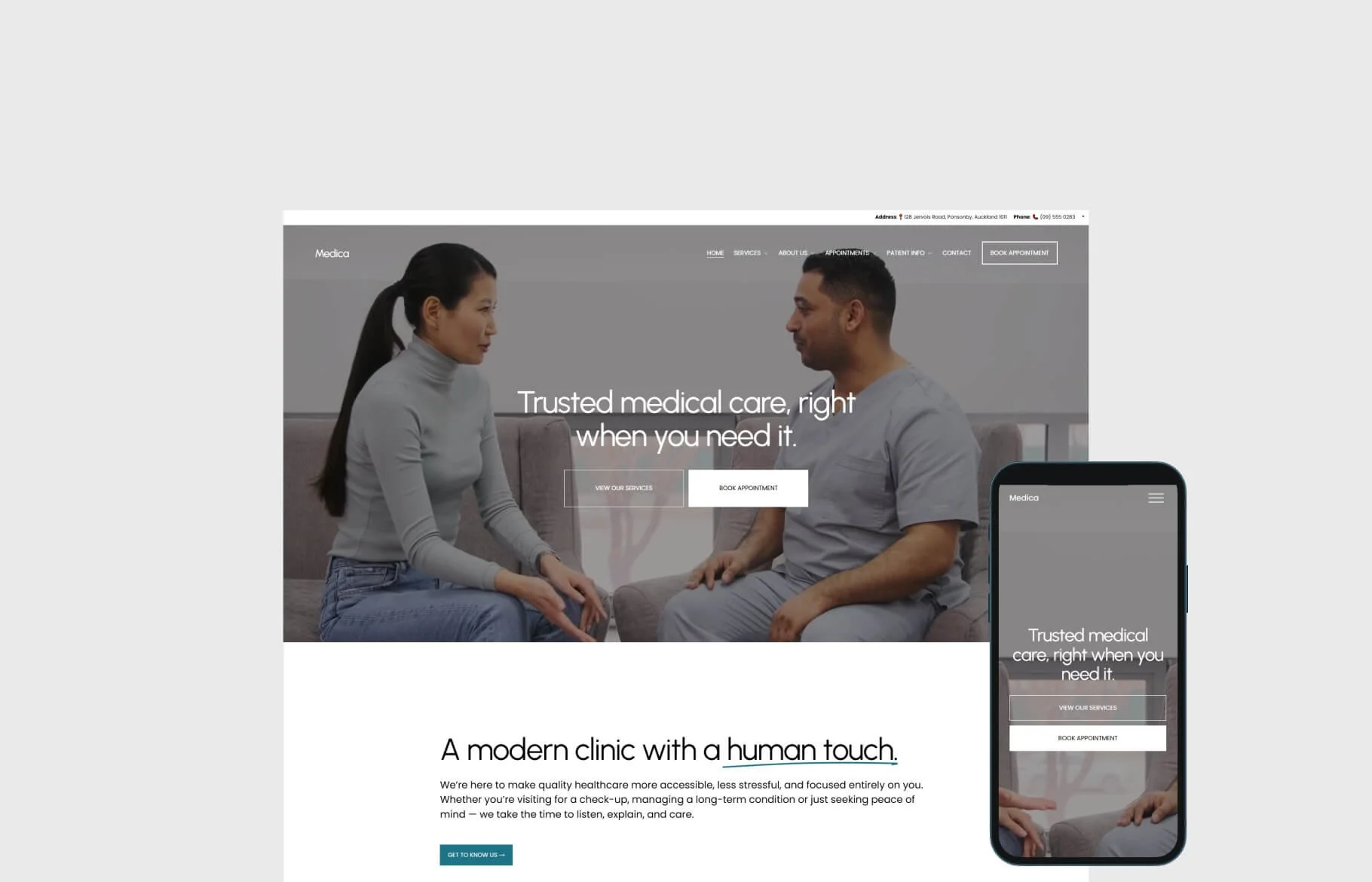Things your web developer probably isn’t telling you - but could cost you revenue
When you invest in a new website, you’re not just buying pixels on a screen. You’re building digital infrastructure that will either support your business growth - or quietly hold it back.
The challenge? Many web developers focus on the build itself rather than the business outcomes the site should enable. That leaves business owners with a finished product that looks great, but doesn’t perform as a growth engine.
In other words: you don’t just need a website. You need a digital asset that actively drives leads, sales, and brand trust.
Here’s what your developer might not be telling you (but you need to know before you sign off on your next project):
What you need to know:
A website without a strategy is just expensive wallpaper
Most websites fail not because of poor design, but because there was no real strategy behind them.
Imagine opening a stunning, luxury storefront… in the wrong part of town. It might look beautiful, the design might win awards but if nobody shows up, it’s a liability, not an asset.
Strategy is what puts your digital “storefront” on the busiest street in town. It ensures your site is:
Mapped to customer journeys: guiding visitors from awareness to action.
Aligned with brand positioning: reflecting who you are and why you’re different.
Designed for conversion: creating pathways to capture leads, book calls, or generate sales.
Without it, you’re left with digital décor instead of a revenue driver.
👉 What to ask your developer: How will this website align with my brand strategy and convert visitors into leads or sales?
Templates aren’t always cheaper in the long run
Yes, a template-based site can feel quick and budget-friendly upfront. But once you need customisation, integrations or scalability, you may end up paying more to fix or retrofit the template than if you’d invested in a proper build from the start.
Think of it like buying a prefab house when you really needed an architect-designed home. Quick, affordable, and good enough for now - but costly to expand, renovate or personalise later.
👉 What to ask: Will this solution scale with my business, or am I locking myself into limitations?
SEO isn’t automatically “included”
A beautiful site is worthless if no one can find it. Yet many business owners assume SEO comes bundled with web development. Spoiler: it usually doesn’t.
In reality, most developers focus on visuals and functionality, leaving search performance as an afterthought. That’s like building a restaurant but forgetting to put a sign on the street.
Without proper SEO foundations - clean code, keyword optimisation, metadata, site structure and schema - your site may never be found by your ideal clients. Retrofitting SEO later is always more expensive.
👉 What to ask: What SEO foundations will be built into my website at launch?
Speed and security are non-negotiable
Today’s users are impatient. Research shows that if a page takes more than 3 seconds to load, visitors bounce. And every extra second of delay can slash conversion rates.
A fast, secure site isn’t a “nice-to-have.” It’s directly tied to user trust, conversion rates, and even your Google ranking.
Security is equally critical. A vulnerable site doesn’t just risk data breaches - it risks trust. One hacked site can destroy years of brand reputation in a day.
Despite this, speed optimisation and security protocols are often the first things cut when deadlines are tight. That’s a gamble you can’t afford.
👉 What to ask: What measures are in place to keep my site fast and secure long-term?
Your website needs ongoing care
A launch is not the finish line - it’s the starting line.
Websites are living systems that require regular updates, content refreshes, security patches, and performance monitoring.
Without this, sites quickly become outdated, buggy, and vulnerable. Unfortunately, many developers “hand off” a website and disappear, leaving business owners with no plan for ongoing care.
👉 What to ask: What ongoing care and optimisation do you recommend after launch?
📝 Strategic Website Investment Checklist:
Before you sign off on your next website project, ask your developer these questions:
Strategy & Growth
How will this website directly support my business goals?
What’s the plan for turning visitors into leads or customers?
Scalability & Flexibility
Will this site grow with my business without requiring a full rebuild?
What limitations should I be aware of if my needs expand?
SEO & Visibility
What SEO foundations are included in the build?
How will the site structure help me rank in search engines?
Performance & Security
How will you ensure the site loads quickly across devices?
What security measures will protect my data and my customers?
Ownership & Control
Will I own the domain, hosting, and full site access?
Who controls my content and data long-term?
Ongoing Support
What happens after launch?
Do you provide maintenance, updates, and optimisation?
A website is not just a design project. It’s a business-critical investment.
The best developers don’t just build; they educate, strategise, and partner with you for the long term.
At Gem Media, this is our philosophy. We don’t just deliver websites. We build digital infrastructure for growth - designed to attract, convert and scale with your business.






























